
ORF Home | Membership | Public Reports | Settlement Overview | Use of ORF Funds
Use of ORF Funds
McKinsey & Company Settlement
To date, the Maryland Department of Health has supported two grant programs using funds received from the settlement with McKinsey & Company. These grant programs will utilize approximately $7,940,645 of McKinsey & Company settlement funds in the 2023 and 2024 fiscal years to support programs being implemented by local jurisdictions and local community organizations. An additional $2 million was allocated to support Maryland’s Data-Informed Overdose Risk Mitigation (DORM) initiative.
- On July 1, 2022, the Maryland’s Office of Overdose Response announced $7,758,159.39 in awards through its grant program titled Implementing the Requirements of the Opioid Use Disorder Examination and Treatment Act (ETAGP). This program is designed to support local jurisdictions in implementing the requirements of the Opioid Use Disorder Examination and Treatment Act (ETA) of 2019, which requires that all local detention centers establish programs to screen incarcerated individuals for opioid use disorder (OUD), offer peer recovery specialist services, counseling services to develop re-entry plans for individuals upon release, and to offer all three FDA-approved formulations of medications for opioid use disorder (MOUD), such as methadone or buprenorphine, in their facilities.
- ETAGP grants are currently supporting programs in 17 local detention facilities through the 2024 fiscal year.
- On September 16, 2022, Maryland’s Office of Overdose Response announced its Access to Recovery Emergency Gap Funds Grant Program. Through this program, we allocated $248,925 in funds for use in the 2023 fiscal year. Funds distributed through this grant program were eligible to reimburse emergency expenses related to recovery services, such as transportation to and from recovery programs and extended stays in recovery housing.
- Access to Recovery Emergency Gap Funds grants were awarded to 12 organizations that work with individuals in recovery, including recovery-focused community organizations, recovery residences that have been certified by the Behavioral Health Administration of the Maryland Department of Health, local health departments, and local behavioral health authorities.
- In the 2023 fiscal year, $2 million of McKinsey & Company settlement grant funds were allocated to support data infrastructure improvements for the DORM initiative. DORM, which was established with the passage of Maryland House Bill 922 of 2018, examines the prescription and treatment history of individuals in Maryland who died from an overdose in order to establish overdose risk profiles and to inform overdose-related programs and policy. To do this, the DORM project links various public health and public safety databases to examine all system interactions of overdose decedents, which can reveal common risk factors and highlight opportunities for intervention. Support for DORM will enhance Maryland’s capacity to inform evidence-based programming and future decisions on spending the ORF settlement using accurate and robust data analytics.
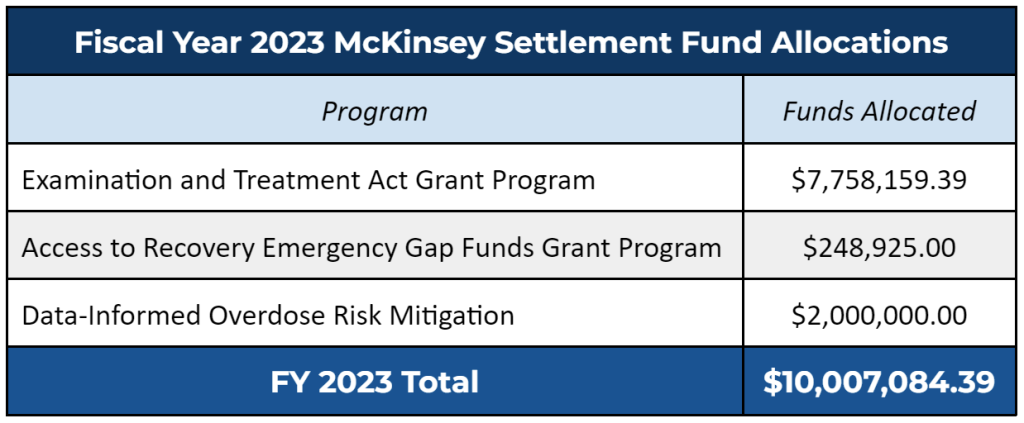
As of the 2023 fiscal year, 80 percent of McKinsey & Company settlement funds have been allocated for use at the local level, and 20 percent have been allocated for use at the state level. These allocations were made prior to the establishment of Maryland’s Opioid Restitution Fund Advisory Council in 2022 (more information about the Opioid Restitution Fund Advisory Council is detailed below).
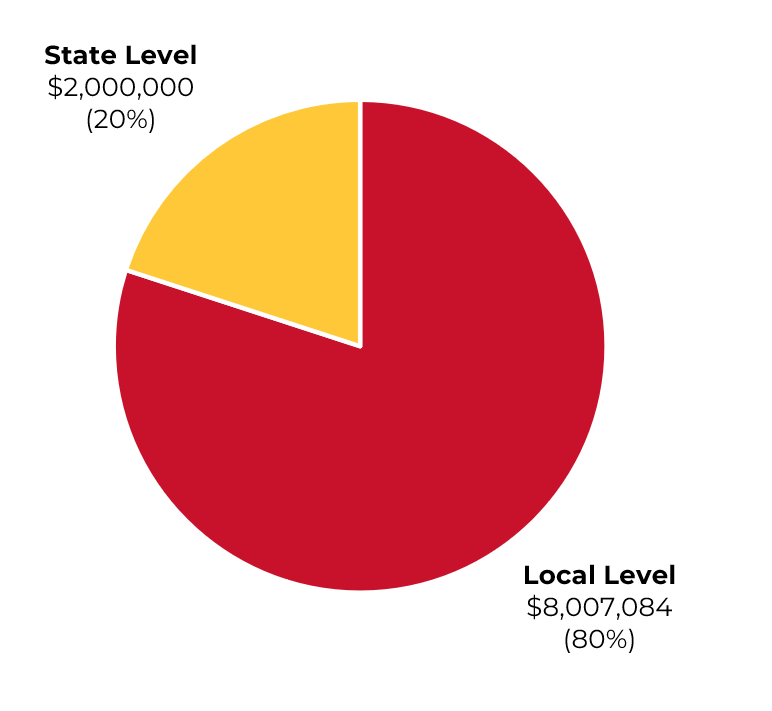
Janssen Settlement
In the 2023 fiscal year, $16,878,897.32 of the $46,889,761.23 that was deposited into the ORF through the Janssen settlement has been distributed. This represents the total allocated for Qualifying Charter Counties through the Targeted Abatement Fund as specified by the State-Subdivision Agreement.
The remaining $7,493,324.19 of funds available for use through the Targeted Abatement Fund in the 2023 fiscal year will be distributed to the remaining participating municipal subdivisions through a grant program administered by the Maryland Department of Health in the 2024 fiscal year. Funding through the Targeted Abatement Fund is formula-based as specified by the State-Subdivision Agreement. A memo from the Maryland Attorney General’s office issued on November 7, 2022, provides additional detail regarding the allocation of these funds among local subdivisions in the 2023 fiscal year.
Additionally, in order to qualify to receive funding, the remaining 51 municipal subdivisions will be required to implement Local Abatement plans as required by the State-Subdivision Agreement. Local Abatement Plans are required to adhere to funding requirements identified by Exhibit E of the National Settlement Agreement as well as the restrictions identified in Section 7-331, which limits expenditures from the ORF to certain types of opioids-related uses approved by the General Assembly, which ordinarily must be evidence-based uses.
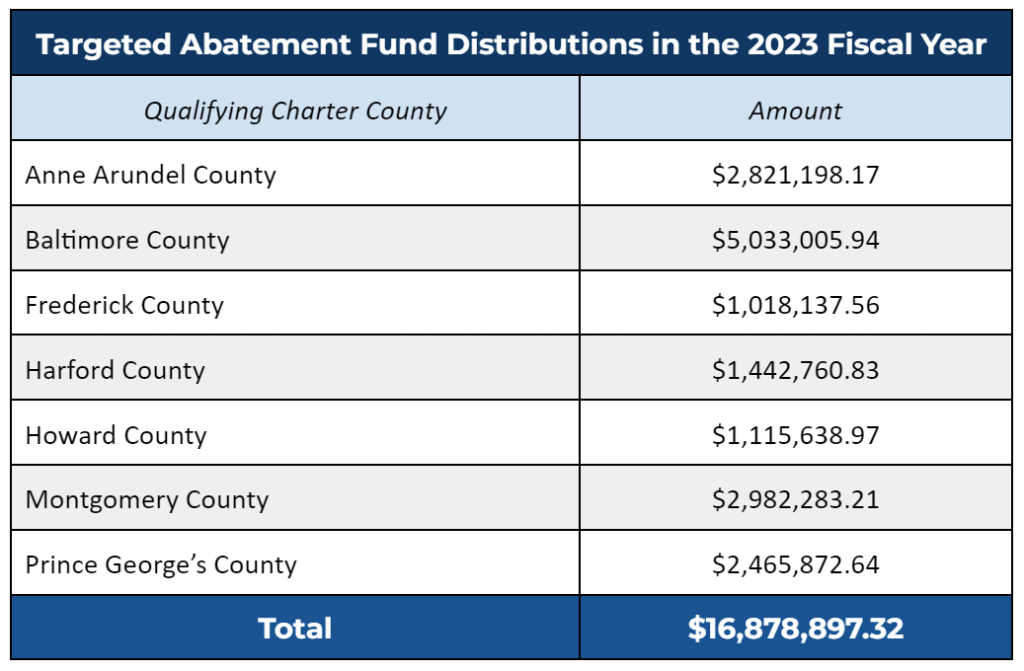
ORF funds through the State Allocation and the State Discretionary Abatement Fund were not distributed in the 2023 fiscal year. The Maryland Department of Health intends to distribute funds through these funds through competitive funding opportunities that consider the recommendations of the Opioid Restitution Fund Advisory Council beginning in the 2024 fiscal year.
Allocation Summary
As outlined above, $57,939,854.23 in prescription opioid-related legal settlement funds have been deposited into the ORF as of the 2023 fiscal year. Of this, $26,885,981.71 was allocated for use at the state and local level and by private organizations.
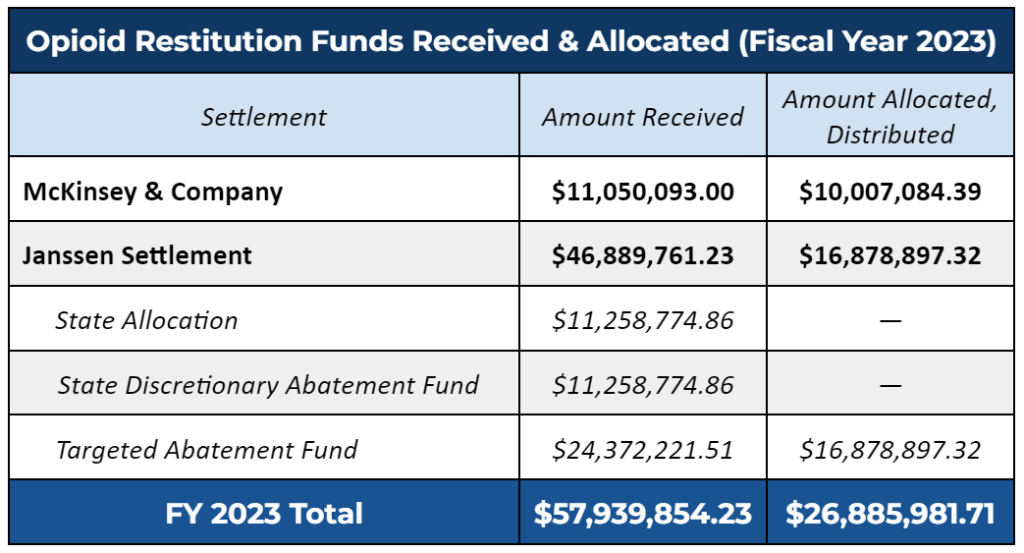
At this time, data related to the expenditure of funds through the Targeted Abatement Grant Fund distributions to Qualifying Charter Counties is unavailable. These distributions were made in June 2023 at the end of the fiscal year. Information regarding the expenditure of these funds will be made available in this report for the 2024 fiscal year.
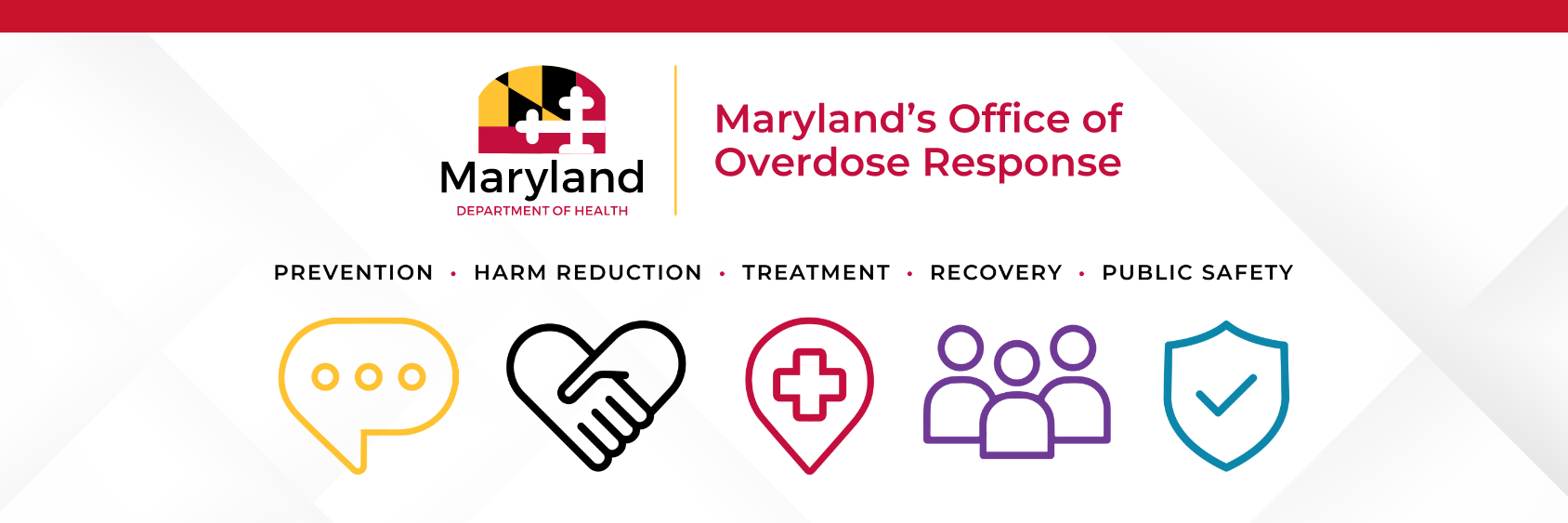
 1-888-373-7888
1-888-373-7888 233733
233733